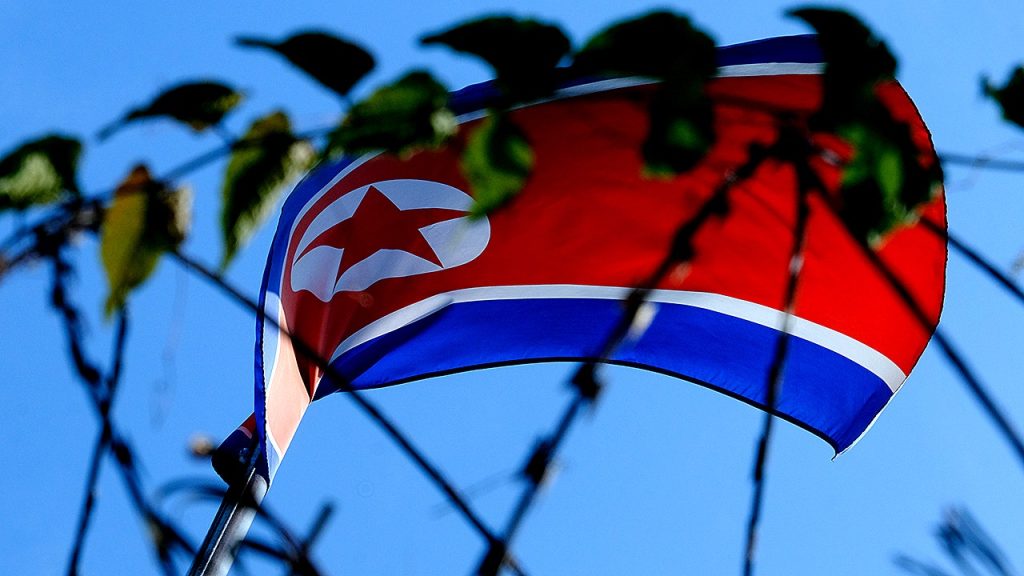In a startling revelation, officials have accused North Korean actors of engaging in intricate cyber schemes to fund their regime through remote IT work for U.S. companies. The U.S. Department of Justice (DOJ) has unveiled charges against multiple individuals, including U.S. nationals, involved in a fraudulent operation that reportedly generated millions for North Korea. This marks a significant moment in international cybersecurity discussions, raising concerns over the activities and capabilities of North Korean operatives.
| Article Subheadings |
|---|
| 1) Overview of the DOJ’s Findings |
| 2) The Mechanism of the Fraudulent Scheme |
| 3) Charges Against U.S. Nationals and Co-Conspirators |
| 4) North Korea’s Response to the Accusations |
| 5) Implications for Global Cybersecurity |
Overview of the DOJ’s Findings
The U.S. Department of Justice recently announced the dismantling of an extensive scheme linked to North Korea, which involved the employment of North Korean nationals in IT jobs with U.S. companies. The DOJ claims that over 100 American companies, including several Fortune 500 firms, were unwittingly targeted by this operation. According to the DOJ, these activities spanned from 2021 to mid-2024 and represented a significant threat to U.S. cybersecurity.
The revelation was part of a larger effort to expose and counteract North Korean cyberactivities, which have increasingly drawn scrutiny due to their disruptive potential. Officials highlighted that North Koreans utilized deception and false identities to secure remote work, implicating various international actors, including individuals from China, Taiwan, and the United Arab Emirates.
The Mechanism of the Fraudulent Scheme
The fraudulent scheme involved North Korean IT workers obtaining remote positions that allowed them to access U.S. companies’ computer networks covertly. This led to the acquisition of confidential information and financial resources amounting to over $5 million. Under this scheme, false identities were utilized, allowing North Koreans to masquerade as legitimate workers and gain employment in various sectors.
Furthermore, the perpetrators reportedly received laptops and technology from the companies employing them, facilitating unauthorized remote access. Specifically, some North Korean operatives infiltrated a blockchain research and development firm in Atlanta, Georgia, stealing virtual currency valued at over $900,000. Such tactics not only raised the alarm regarding data security but also spotlighted the sophistication of North Korean cyber operations.
Charges Against U.S. Nationals and Co-Conspirators
In the fallout from the DOJ’s investigation, several U.S. nationals were charged, including Zhenxing Wang, a New Jersey resident who was arrested in connection with the alleged schemes. Wang and his associates are accused of facilitating the remote work arrangements that enabled North Korean operatives to generate substantial revenue for the regime.
Those indicted also included multiple Chinese and Taiwanese nationals who played various roles in executing the scheme. Notably, the DOJ has asserted that the collective actions of these conspirators resulted in significant legal and financial ramifications for the victimized companies. The costs incurred by these firms, including remediation expenses and damages, amounted to at least $3 million.
North Korea’s Response to the Accusations
Following the DOJ’s assertions, the Democratic People’s Republic of Korea (DPRK) vehemently denied the allegations, categorizing them as a “smear campaign” designed to undermine its image on the global stage. A spokesperson for the DPRK Foreign Ministry criticized the U.S. judicial system, claiming it acted arbitrarily against North Korean citizens suspected of cybercrime.
In a statement, the spokesperson argued that accusations were unfounded and aimed at creating international instability in cyberspace. The Foreign Ministry also expressed concerns over threats to the rights and security of North Korean citizens, asserting a commitment to protecting them from what it perceived as political maneuvers from external forces.
Implications for Global Cybersecurity
The allegations surrounding the North Korean IT scheme signal broader concerns about cybersecurity in the modern global landscape. As cyber threats evolve, companies worldwide must remain vigilant to deter similar infiltrations. Given the sophisticated tactics employed by North Korean operatives, it’s essential that organizations enhance their security protocols and raise awareness about potential vulnerabilities in remote work arrangements.
Additionally, this incident underlines the importance of international cooperation in combating cybercrime. Nations need to collaborate towards establishing stringent protocols and frameworks to safeguard sensitive data against foreign exploitation. The DOJ’s efforts to unveil this scheme represent a significant step in addressing these evolving challenges.
| No. | Key Points |
|---|---|
| 1 | North Korean officials are accused of running fraudulent IT schemes to finance the regime. |
| 2 | Over 100 U.S. companies were allegedly targeted, including Fortune 500 firms. |
| 3 | Zhenxing Wang and several U.S. nationals are charged in connection with supporting the scheme. |
| 4 | North Korea labeled the accusations as an absurd smear campaign against its citizens. |
| 5 | The incident highlights increasing cybersecurity concerns and the need for international cooperation. |
Summary
This report regarding the North Korean cyber fraud scheme serves as a critical reminder of the vulnerabilities inherent in remote work arrangements. With the involvement of multiple international actors, the complexity of these fraudulent activities poses major implications for both the economic and cybersecurity landscape. Immediate and concerted efforts across borders will be essential to mitigate these threats and bolster defenses against future cybercrimes.
Frequently Asked Questions
Question: What are the main allegations against North Korea?
North Korea is accused of orchestrating fraudulent schemes employing IT workers to gain access to U.S. companies and unlawfully generate funds for the regime.
Question: Who has been charged in connection with the schemes?
Individuals charged include U.S. nationals such as Zhenxing Wang along with several foreign nationals from China and Taiwan.
Question: How did North Korea respond to the accusations?
North Korean officials have dismissed the allegations as an absurd smear campaign aimed at tarnishing the country’s image and infringing on its sovereignty.


